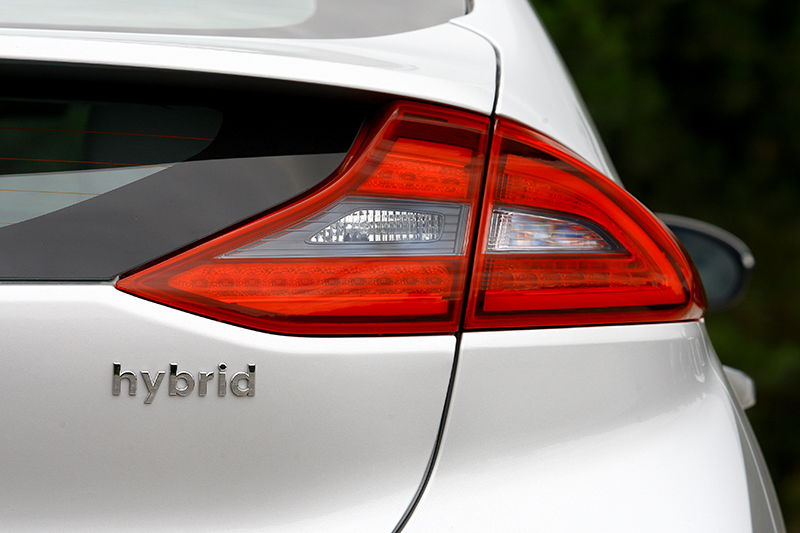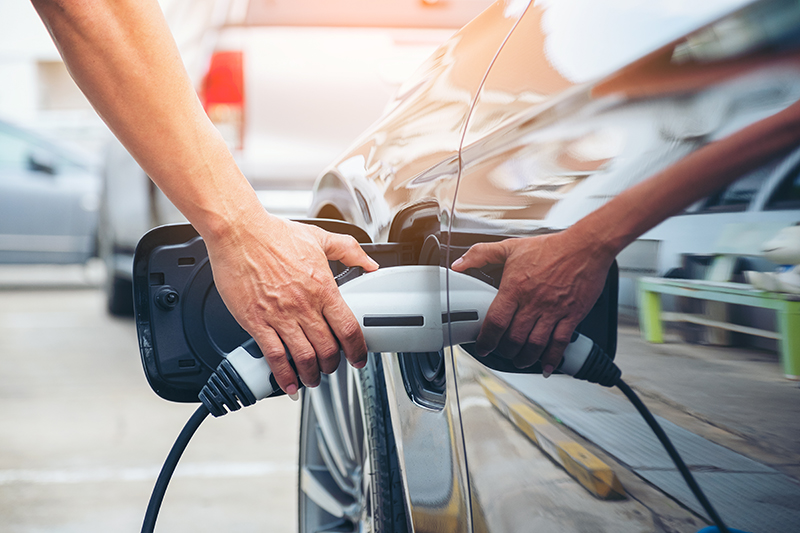Hybrid, plug-in hybrid or electric car - Which is the best?

Published: Thursday, 09 February 2023
In hope to cut CO2 emissions generated by UK transport, there are many new low-emission and zero-emission options available for those looking to purchase an EV. With the UK Government bringing forward the ban on new sales of petrol and diesel vehicles to 2030, drivers are now being encouraged to switch to a hybrid, plug-in hybrid or electric car.
YESSS Electrical have rounded up everything you need to know before considering
whether a hybrid or electric car is the best solution for you. Continue reading this handy guide to find out more information on the different types of electric cars.
What are Electric Cars?
Electric cars have built-in electric motors and lithium-ion batteries to power them, replacing the common petrol or diesel combustion engine found in most vehicles.
There are three main types of electric vehicles:
- Hybrid
- Plug-in Hybrid
- Fully-Electric Car
The main appeal of a hybrid or electric car is the low running costs. But, which is the best option, hybrid, plug-in hybrid or fully electric? Let’s take a look.
Hybrid v Plug-in Hybrid
What are Hybrid Cars?
A hybrid vehicle is a partially electrified car that uses two sources of power. This has a battery-powered unit with the added benefit of a petrol or diesel engine to rely on if the power runs out.
This type of electric car consists of a traditional engine with a small battery that is self-charging. The hybrid vehicle is powered primarily by a petrol or diesel engine which self-charges the battery when in use through regenerative braking or simply by driving. While the battery will self-charge up to a certain point, you have the option to maximise this via a home charger.
A hybrid vehicle is a great option for those who might feel slightly apprehensive about making the switch to a fully electric vehicle. Hybrids provide you with the classic sound and feel of a petrol or diesel engine while lowering fuel costs and emissions. With a hybrid car, you can easily switch between pure electric and traditional fuel-fed combustion with the simple switch of a button.
Let’s take a look at the advantages and disadvantages of hybrid cars.
Advantages and Disadvantages of a Self-Charging Hybrid Car
| Pros | Cons |
| Familiarity | Lower fuel savings than fully electric cars |
| Tax benefits | Fewer environmental benefits than fully electric vehicles |
| Efficiency | Maintenance costs can be higher due to the dual engine and the advanced technology |
| Low-emissions | |
| Less expensive than plug-in hybrid or electric alternatives | |
| Cheaper to run than a petrol or diesel car | |
| Self-charging | |
| Convenience |

What are Plug-In Hybrids?
A plug-in hybrid is the next step up from a hybrid. This type of vehicle is very similar to the hybrid, and is partially electrified using two sources of power: a medium sized battery and petrol or diesel fuel. The difference between a plug-in hybrid and hybrid is that, a plug-in hybrid vehicle will need charging regularly and can not self-charge.
A plug-in hybrid is designed to be powered by electricity until the battery power runs out, after which the diesel or petrol combustion engine takes over. Similar to the hybrid vehicle, the plug-in hybrid is a great option for those wanting to stick with a petrol or diesel engine while reducing fuel costs and helping the environment.
A typical plug-in hybrid can do between 20-30 miles on a single charge before the fuel driven engine takes over, which is brilliant for those who generally use their car for short journeys. Also, if you start charging your plug-in hybrid overnight at home, you can benefit from lower electricity costs and travel mainly on electricity, without the need to top-up your fuel. Let’s explore the pros and cons of the plug-in hybrid.
Advantages and Disadvantages of a Plug-In Hybrid Car
| Pros | Cons |
| Low-emission | More expensive than a self-charging hybrid |
| Tax benefits | Fewer environmental benefits than a fully-electric car |
| Efficiency | You'll need to find public electric car charging facilities or have a home charger installed |
| Familiarity | Moderate fuel savings when compared to a fully-electric car |
| Very low running costs on short journeys | Higher maintenance costs |
| Fuel-powered engine automatically kicks in |

Hybrid or Electric Car?
So, now we know what a hybrid car is and the advantages and disadvantages of one, what is a fully electric car?
As the name suggests, a fully electric car is solely powered by an electric battery, with no petrol or diesel input. Electric vehicles tend to be much more appealing, offering lower running costs, no oil and filter changes and a range of around 300 miles per charge, depending on the type of EV.
Of course, charging facilities are currently one of the biggest concerns around electric cars. In a recent survey carried out by Which?, it was found that around 29% of people are worried about the lack of EV chargers near their home. However, purchasing a home charger can help to combat this issue, minimising the risk of running out of charge.
So, which is the best option, a hybrid or electric car? Although hybrids are a great option for those seeking the best of both worlds, the sale of new hybrid cars is set to end in 2035, which could make them less appealing. On the other hand, the number of fully-electric cars is rapidly increasing on UK roads, as a greener and much more cost-efficient alternative. However, the initial cost of a fully-electric car is somewhat more expensive than the hybrid. Let’s take a look at the advantages and disadvantages of a fully-electric car before deciding which is the best option for you.
Advantages and Disadvantages of a Fully-Electric Car
| Pros | Cons |
| Low-emission | The initial cost is more expensive than a hybrid |
| Zero tax | You'll need to find public electric car charging facilities unless you have a home charger installed |
| 100% fuel efficient | does not have a fuel-powered engine that kicks in when you run out of electricity, increasing the risk of running out of charge |
| Lower maintenance costs | |
| Zero emissions | |
| Comfortable to drive | |
| Quiet |

Which Electric Car Best Fits Your Lifestyle?
Fully electric vehicles are suitable for most driver’s needs. However, they’re not always the most affordable option. Hybrid vehicles are cheaper than a fully-electric car, but are less fuel efficient and provide fewer environmental benefits.
Choosing an electric car is just like picking a conventional car, but you’ll need to think about the following:
- Whether you do more long or short journeys
- Consider having a home charger installed
- Whether there’s public charging facilities near where you live, work or shop
- Whether you’re looking to lease or buy the EV
- Whether you still want the familiarity of a petrol or diesel car combined with a electric powered engine
Every type of electric car has its advantages and disadvantages. To find out which electric car best suits your lifestyle, take our quick quiz below.

Switch to Home Charging With YESSS Electrical
Whether you’ve chosen a hybrid, plug-in hybrid, or electric car, you’ll need to charge your EV. Finding a public charger close to your home can often be time-consuming, wasting money and energy travelling back and forth.
Home charging is a much more convenient and cost-effective way to charge your electric vehicle. Charging your EV at home overnight can allow you to benefit from lower electricity costs and ensure that your car’s battery is at full capacity for the day ahead.
At YESSS Electrical we stock a range of domestic and commercial EV chargers, including some of the top brands: Wallbox, PodPoint and Easee. Browse our website today, or give us a call on 01924 227941 for more information on our EV charging range

